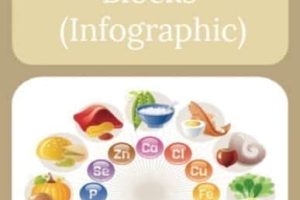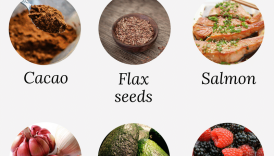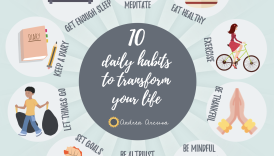Vitamin Essentials: Building Blocks for a Strong and Healthy Life

In today’s fast-paced world, the importance of vitamins often goes unnoticed. Many people rush through their daily routines, skipping meals or opting for convenience foods, which can lead to a lack of essential nutrients. Vitamins are fundamental to maintaining good health, regulating various bodily functions, and supporting energy levels. Imagine feeling fatigued or experiencing frequent colds—these could be subtle signs of vitamin deficiencies. Here are a few reasons why focusing on vitamins should be a priority:
- Vitamin Essentials: Building Blocks for a Strong and Healthy Life
- Importance of Vitamins in Daily Life
- The Core Benefits of Vitamins
- Understanding the Different Types of Vitamins
- Fat-Soluble Vitamins
- Water-Soluble Vitamins
- Sources of Vitamins in Food
- Vitamin A
- Vitamin C
- Benefits of a Vitamin-Rich Diet
- Enhanced Immune Function
- Improved Energy Levels
- Better Mood and Mental Health
- Common Vitamin Deficiencies
- Vitamin D Deficiency
- Vitamin B12 Deficiency
- Iron Deficiency
- Vitamin Supplements: Pros and Cons
- Pros of Vitamin Supplements
- Cons of Vitamin Supplements
- Impact of Vitamins on Overall Health
- Physical Health and Vitality
- Mental Well-Being
- Best Practices for Vitamin Absorption
- Pairing Food Wisely
- Maintaining Balanced Meals
- The Role of Vitamins in Immune Health
- Key Vitamins for Immune Function
- Practical Tips for Boosting Immune Health
- Vitamins and Mental Well-Being
- Essential Vitamins for Mental Health
- Small Changes for Big Impact
- Balanced Diet: A Key to Meeting Vitamin Requirements
- The Importance of Balance
- Practical Tips for a Balanced Plate
- Energy Production: Vitamins help convert food into energy.
- Immune Function: They play a crucial role in keeping the immune system strong.
- Mental Clarity: Many vitamins are linked to brain health and mood regulation.
Being mindful of vitamin intake is crucial for a balanced and vibrant lifestyle.
Importance of Vitamins in Daily Life
Transitioning from the previous discussion about the often-overlooked significance of vitamins, it’s essential to highlight how they impact daily life. Vitamins are not just supplementary; they are integral to our overall well-being and daily functioning.
The Core Benefits of Vitamins
Imagine waking up each day feeling energized and ready to tackle your tasks. This is often a result of adequate vitamin intake. Here are some critical roles that vitamins play:
- Physical Health: Vitamins A, C, D, E, and K are vital for skin, vision, bone health, and more.
- Emotional Balance: B vitamins, for instance, are linked to mood regulation and reducing stress.
- Disease Prevention: A well-rounded vitamin intake can help ward off chronic diseases.
Integrating a mix of vitamins into our diet not only enhances personal vitality but also encourages a healthier lifestyle overall.
Understanding the Different Types of Vitamins
Having established the importance of vitamins, let’s dive deeper into the two primary categories: fat-soluble and water-soluble vitamins. Understanding these distinctions can help individuals make informed dietary choices.
Fat-Soluble Vitamins
Fat-soluble vitamins include Vitamins A, D, E, and K. These vitamins are stored in the body’s fatty tissues and liver, which means they don’t need to be consumed daily. For example:
- Vitamin A is crucial for vision and immune function, found in carrots and sweet potatoes.
- Vitamin D supports bone health and is obtained from sunlight and fortified foods.
Water-Soluble Vitamins
On the other hand, water-soluble vitamins, which include the B vitamins and Vitamin C, dissolve in water and are not stored in the body. Here’s why they are important:
- Vitamin C is essential for skin health and boosting immunity, found abundantly in citrus fruits.
- B Vitamins play key roles in energy production and brain function.
Incorporating a variety of both types is essential for a well-rounded diet and optimal health.
Sources of Vitamins in Food
Building upon the understanding of vitamin types, it’s important to explore where these vital nutrients can be found in our everyday diets. Identifying food sources of essential vitamins can empower individuals to make healthier choices.
Vitamin A
Vitamin A is crucial for vision, immune function, and skin health. It’s found in various foods, making it relatively easy to incorporate into daily meals. Here are some fantastic sources:
- Carrots: These orange veggies are renowned for their high beta-carotene content.
- Dark Leafy Greens: Spinach and kale provide a wealth of Vitamin A.
- Sweet Potatoes: A delicious alternative with a sweet flavor packed with nutrients.
Vitamin C
Vitamin C is well-known for its immune-boosting properties. Including it in your diet can be as simple as enjoying a few citrus fruits or vegetables. Consider these sources:
- Oranges and Grapefruits: Classic choices that are refreshingly tangy.
- Bell Peppers: Surprisingly high in Vitamin C and versatile in cooking.
- Broccoli: A nutrient powerhouse that can be eaten raw or cooked.
Incorporating these foods into meals not only supports vitamin intake but also enhances overall health and well-being.
Benefits of a Vitamin-Rich Diet
Having explored the sources of essential vitamins, it’s evident that a vitamin-rich diet can significantly enhance one’s quality of life. Prioritizing vitamins not only supports bodily functions but also elevates overall well-being.
Enhanced Immune Function
A diet rich in vitamins strengthens the immune system, which is crucial, especially during cold and flu seasons. For instance, loading up on Vitamin C can reduce the duration of colds.
Improved Energy Levels
Additionally, vitamins work together to optimize energy levels. B vitamins, such as B12 and B6, play a vital role in energy metabolism. Individuals who consume adequate amounts often report feeling more energetic throughout the day.
Better Mood and Mental Health
Lastly, certain vitamins, particularly the B vitamins and Vitamin D, are linked to improved mood and mental health. A balanced diet can foster emotional stability and cognitive function. Embracing a variety of vitamin-rich foods is not only delicious but also key to a healthier, more vibrant life.
Common Vitamin Deficiencies
Transitioning from the benefits of a vitamin-rich diet, it’s crucial to recognize that many individuals may still be at risk for vitamin deficiencies despite their best efforts. Understanding these common deficiencies can help in taking proactive measures for improvement.
Vitamin D Deficiency
Vitamin D deficiency is widespread, especially in regions with limited sunlight. It’s important for bone health and immune function, and symptoms such as fatigue and muscle weakness can arise from a lack of this vital nutrient.
Vitamin B12 Deficiency
Another common deficiency is Vitamin B12, particularly among vegetarians and older adults. Symptoms can include fatigue, weakness, and neurological issues.
Iron Deficiency
While not a vitamin per se, iron is often included in discussions around deficiencies. Many people, particularly women, struggle with iron deficiency, which can lead to anemia and decrease overall energy. By being aware of these deficiencies, individuals can make informed dietary choices or consult with healthcare professionals for supplementation.
Vitamin Supplements: Pros and Cons
Following the discussion on common vitamin deficiencies, many people wonder whether vitamin supplements are a viable option to bridge the nutritional gap. While they may be beneficial, there are both pros and cons to consider.
Pros of Vitamin Supplements
- Convenience: For those with busy lifestyles, supplements provide an easy way to ensure nutrient intake.
- Targeted Nutrient Support: Supplements can address specific deficiencies, such as Vitamin D or B12, which might be hard to obtain through diet alone.
- Health Boost: Certain supplements can enhance overall health, particularly for individuals with restricted diets.
Cons of Vitamin Supplements
- Potential Overconsumption: Taking supplements without professional guidance can lead to excessive intake and adverse effects.
- Cost: Quality supplements can be expensive, and they may not always replace the benefits of whole foods.
- Limited Regulation: The supplement industry can sometimes lack stringent regulations, leading to issues with quality.
Balancing the pros and cons will help individuals make informed decisions about incorporating supplements into their diets.
Impact of Vitamins on Overall Health
As we delve deeper into the role of vitamins, it’s vital to recognize their profound impact on overall health. Beyond just preventing deficiencies, vitamins significantly influence various bodily systems and processes.
Physical Health and Vitality
A well-rounded intake of vitamins contributes to physical health in remarkable ways:
- Bone Strength: Vitamins D and K play critical roles in maintaining bone density and strength.
- Heart Health: B vitamins and antioxidants can help lower the risk of cardiovascular diseases.
Mental Well-Being
Vitamins also play a crucial role in mental health. For instance:
- Brain Function: Vitamins B6, B12, and folate are vital for proper brain function and cognitive health.
- Mood Regulation: Adequate levels of Vitamin D can improve mood and reduce feelings of anxiety.
Pairing a balanced diet rich in vitamins with other healthy practices results in a holistic approach to overall health and wellness. Making conscious choices about vitamin intake can lead to a more vibrant, fulfilling life.
Best Practices for Vitamin Absorption
Now that we’ve explored the significant impact of vitamins on overall health, let’s discuss how to maximize their absorption in the body. Even with a diet rich in vitamins, certain habits can influence how effectively these nutrients are utilized.
Pairing Food Wisely
One effective strategy is to pair foods that enhance absorption:
- Fat-Soluble Vitamins: Eating avocados or nuts alongside vegetables rich in Vitamins A, D, E, and K increases absorption.
- Vitamin C Boost: Consuming Vitamin C-rich foods, like bell peppers, with iron sources, such as spinach, can improve iron absorption dramatically.
Maintaining Balanced Meals
Another essential practice is to ensure meals are balanced.
- Incorporate Variety: A diverse diet, rich in whole grains, fruits, and proteins, helps secure a broad range of vitamins.
- Watch Cooking Methods: Gentle cooking methods like steaming can preserve vitamin content better than boiling.
Being mindful of these practices can significantly enhance vitamin absorption and overall health benefits, making each meal count.
The Role of Vitamins in Immune Health
Having discussed best practices for vitamin absorption, it’s crucial to highlight how vitamins play an essential role in immune health. A strong immune system is vital for warding off illnesses and ensuring overall well-being, and the right vitamins can be key players in this process.
Key Vitamins for Immune Function
Several vitamins are particularly influential in supporting the immune system:
- Vitamin C: Known for its role in producing white blood cells, essential for fighting infections.
- Vitamin D: Supports immune responses and has been shown to reduce the risk of respiratory infections.
- Vitamin A: Maintains the integrity of mucosal barriers and is crucial in the body’s defense mechanisms.
Practical Tips for Boosting Immune Health
Integrating these vitamins into daily diets can be straightforward:
- Citrus Fruits and Green Vegetables: Add them to smoothies or salads for a vitamin boost.
- Fortified Foods: Consider options like fortified dairy or cereals for extra Vitamin D.
By ensuring adequate vitamin intake, individuals can strengthen their immune response and promote a healthier lifestyle.
Vitamins and Mental Well-Being
Building on the discussion about the role of vitamins in immune health, it’s equally important to explore how vitamins influence mental well-being. The connection between nutrition and mental health is increasingly recognized, and vitamins are central to this relationship.
Essential Vitamins for Mental Health
Several vitamins play critical roles in supporting brain function and emotional balance:
- B Vitamins: B6, B12, and folate are essential for neurotransmitter synthesis, impacting mood and cognitive function.
- Vitamin D: Low levels have been linked to mood disorders, including depression. Ensuring sufficient sunlight exposure or supplementation can help.
- Omega-3 Fatty Acids: Although not a vitamin, this nutrient works alongside vitamins to promote brain health and emotional stability.
Small Changes for Big Impact
Incorporating vitamin-rich foods can be simple:
- Start Your Day: Breakfast with whole grains, fruits, and nuts can enhance mood and cognitive function.
- Mindful Eating: Focus on foods like spinach, salmon, and eggs, which are packed with brain-boosting nutrients.
Prioritizing vitamins in our diets can significantly enhance mental well-being and foster a more positive outlook on life.
Balanced Diet: A Key to Meeting Vitamin Requirements
Having explored the profound impact of vitamins on mental well-being, it’s clear that a balanced diet is crucial for meeting vitamin requirements effectively. Not only does it foster overall health, but it ensures that our bodies get the full spectrum of essential nutrients needed for optimal functioning.
The Importance of Balance
A balanced diet consists of a variety of food groups, each contributing different vitamins:
- Fruits and Vegetables: These are rich in vitamins A, C, and E, providing antioxidants and fiber.
- Whole Grains: Foods like brown rice and oats are sources of B vitamins, enhancing energy production.
- Proteins: Lean meats, fish, and legumes contribute vital vitamins like B12 and iron, supporting bodily functions.
Practical Tips for a Balanced Plate
To create a balanced plate:
- Colorful Variety: Aim for a rainbow of fruits and vegetables to cover a wide range of vitamins.
- Plan Ahead: Meal prep can help ensure balanced meals during busy weeks.
Ultimately, a balanced diet is fundamental for meeting vitamin needs and promoting lifelong health and vitality.




